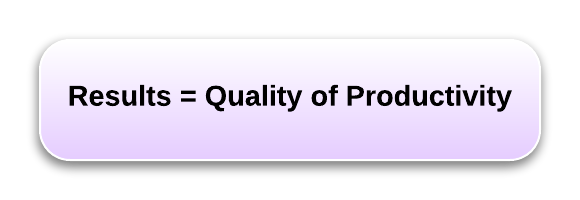How Many Hours Do You Actually Work?

You know the drill…
You collapse in to bed at the end of the day wondering where the day went. You’re exhausted because you really put a shift in today.
Or did you?
It's not that you've been lazy or that you didn't show up. You're there every day without fail, putting in the hours.
So why does your work seem to take so long to do?
Could it be that you work less than you think you do?
--
Productivity - what you actually produce - is not the same thing as hours put in.
How many hours do you actually work in a day?
This is well worth working out because, with a bit of self analysis, you’ll probably notice that you waste significant chunks of the day. if we’re all honest with ourselves, most people do it. Even people who run time management websites aren’t immune!
Is this even a problem?
Well, it depends whether or not your time is important to you.
And, when you do work, whether or not you're doing the highest value things.
If you’ve got a reason not to waste time, you’ll want to get your work done quicker so you can (a) do more, or (b) leave earlier (or at least on time).
For both you need roles or goals that matter enough to you.
An example
In my day job I usually arrive at 8.15 and leave at 4.15, your standard 8 hour day.
Of that, 5 hours are usually accounted for, leaving me 3 to use as I choose.
These
are the crucial hours, the ones that affect everything.
Sure, if I didn’t have reasons to go home at 4.15 I could extend them. But roles (family) and goals (whatever I want to do during the evening) give me good enough reasons to leave on time. And that caps my hours which forces me to look for ways to work more efficiently.
My reward? I get to go home earlier.
Of course the reward is different for all of us -- you may want to produce more for other reasons.
Assuming you do, who or what stops you from working?
Once you know what gets in the way you can do something about it.
Here are seven ideas to try:
1. Keep a time log
Quite hard to do and not always accurate but a really insightful way to find out how many hours (or minutes) you actually work during the course of a day.
Even if you only manage to get a rough estimate you'll still find out where your time sink holes are.
2. Work to your list
If it’s on your daily list you know it matters. Aim to block off some time each day to get your list done in one go.
The momentum of doing this is often what makes sure it all gets done.
3. Time box
Set a timer for a length of time that suits you and work exclusively on whatever it is you want. This is really effective for getting started on work that tends to take hours rather than minutes.
4. Carve out quiet times
When can you work undisturbed? Time box times like this to improve your productivity. In this age of constant connectivity when and where could you do this?
Use this time to get your 'big rocks' out of the way for the day.
5. Work offline
Do you dare? Unplug and cut out all those distractions. You’ll be surprised at just how much creative work you can produce.
It may take a bit of planning and forethought. but it could be some of the most productive time you spend today.
6. Tame your inbox
Check email at scheduled times and turn that pinger thingy off!
7. Manage meetings
Do everything in your power to improve the quality and reduce the quantity of meetings you have to attend.
Hours put in mean nothing. They do nothing more than feed the illusion that things are getting done.
Your productivity and the quality of it is what determines the results you get.
Reduce the gap between the hours you work and the work you actually produce and free yourself up to pursue more of whatever you want.
- Home ›
- Time Management in the Workplace ›
- How Many Hours Do You Actually Work?

